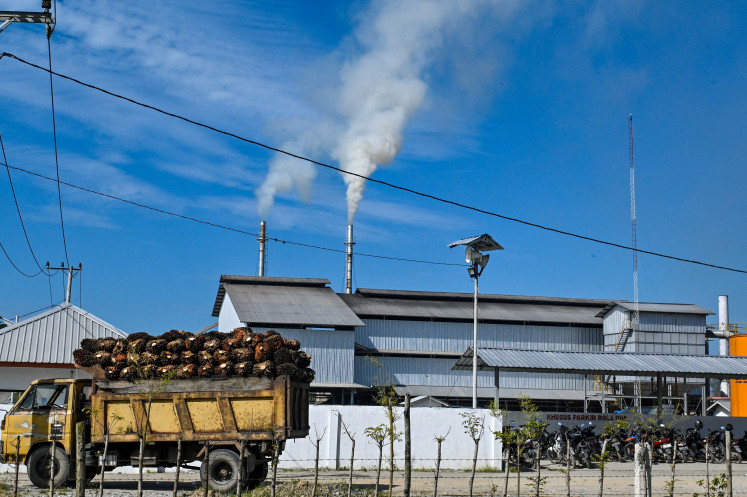Popular Reads
Top Results
Can't find what you're looking for?
View all search resultsPopular Reads
Top Results
Can't find what you're looking for?
View all search resultsStudents change 'kemangi' into cosmetics
To look beautiful and healthy is not costly, as a group of students at the Yogyakarta State University (UNY) has successfully proven by processing the local kemangi, or lemon basil leaves, into facial cleansers and face sprays, as well as a germ killers and hand sanitizers
Change text size
Gift Premium Articles
to Anyone
T
o look beautiful and healthy is not costly, as a group of students at the Yogyakarta State University (UNY) has successfully proven by processing the local kemangi, or lemon basil leaves, into facial cleansers and face sprays, as well as a germ killers and hand sanitizers.
'For the sake of beauty, people at times are willing to spend up to millions of rupiah after falling prey to advertisements,' said UNY Mathematics and Science School (FMIPA) student Taufik Nur Rahmadi.
Consumers are subject to various bogus beauty products, including face cleansers and sanitizers mixed with harmful chemicals.
'To look beautiful, they are often less selective and become prey to various cosmetic product advertisements,' said team member Yeni Pijayani, Taufik's colleague.
Consequently, Taufik and Yeni, together with three other friends, conducted research on beauty references. They aim to create a beauty product made of herbal ingredients.
So Taufik, Yeni and three other colleagues Heru Khoirul Ummah, Muhammad Ali Imron Sadewo and Windy Septiana Mulyatinigrum conducted dozens of trials.
'From various references and trials, we eventually picked kemangi. Besides its benefits, the kemangi is a tropical plant and easily found everywhere,' said Taufik.
Kemangi leaves, which are usually eaten raw to accompany rice, contain vitamins A, C and B, which function to refresh the skin. So far, the vitamin contents of kemangi are also helpful to treat acne and pimples.
Kemangi leaves also contain several essential compounds, such as saponin, tannin and flavonoid, which all play a natural role to slow down bacterial growth and restore cell networks.
'The compounds and vitamins in kemangi is a blend to treat the skin, especially facial skin,' said Taufik.
Extracting raw material from kemangi is quite simple, done by mixing kemangi extract with 10 percent alcohol at a ratio of one-to-one, which makes alcohol function as a sterilizer as well as a preservative. The 10 percent alcohol content is also safe for the skin, especially facial skin.
To produce hand sanitizer, for those too lazy to wash their hands with soap, kemangi extract is mixed with 20 milliliters of glycerol, 10 ml of propyline glycol and 2 ml of bubblegum perfume. The ingredients are mixed in a sterile bottle and ready to use.
Taufik said thanks to beauty and cleanliness lifestyles, the potential of beauty products is wide open.
'We are rich in various natural materials for skin treatment and other herbal medicine and do not rely on imports and as long as they are managed well, we are convinced we can do it,' said Taufik.
Taufik and his friends expect the industrial sector would respond to the students' findings by conducting further research because no matter how good the results are, without support from the industrial sector the research will just be useful for journals and not for society at large.










